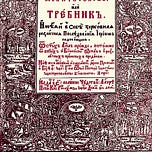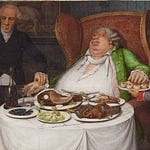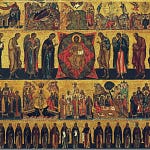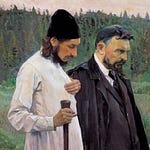A few days ago, I received an interesting email in the post from a group to which I happen to belong. The curators of the newsletter pose a practical question to several bishops or priests and then share the answers. It is usually short, not particularly profound, and very informative. I think that the idea is wonderful and can be quite useful. In this mailing, the topic was the prayer rule before Communion - more specifically, whether a priest could still serve the Liturgy if he failed to complete the prayer rule before Communion.
The answers of senior priests offered in the newsletter were insightful, as they usually are, but that is not what drew my attention. Of particular interest to me was the appellation to a 17th-century text often included in the back of Slavonic editions of the Service Book. The text clearly indicates that the rule contained in it is of general applicability to priests, deacons, “or anyone else"; and in my experience, the question of prayers before Communion is indeed of concern to many clergy and laity alike. Here is the text in the translation provided by the newsletter:
"If a priest, deacon or anyone else deliberately neglects the prescribed Church rule and the proper preparation for Communion, whether partially or completely, out of laziness or neglect, they commit a mortal sin.
However, if a priest is engaged in other spiritual duties, such as hearing confessions or administering sacraments, and lacks time to fully complete the preparations before the Divine Liturgy, it is not considered a sin. In such a scenario, it is advised that clergymen complete the remaining part of the rule after the Service, provided they can still offer prayers for Communion before the Liturgy."
The emphasis was provided by the editor of the newsletter and is absent in the original text. It is not clear why the editor chose to emphasize those particular parts, but this speaks more about the sensibilities of the editor, rather than about the consensus of the Church. The excerpt as provided here is somewhat incomprehensible. Let us take a closer look at the context of this selection, the history of the pre-Communion prayers, and the implication of completing the remaining part of the rule after the Service.
Listen to this episode with a 7-day free trial
Subscribe to Phroneo to listen to this post and get 7 days of free access to the full post archives.












